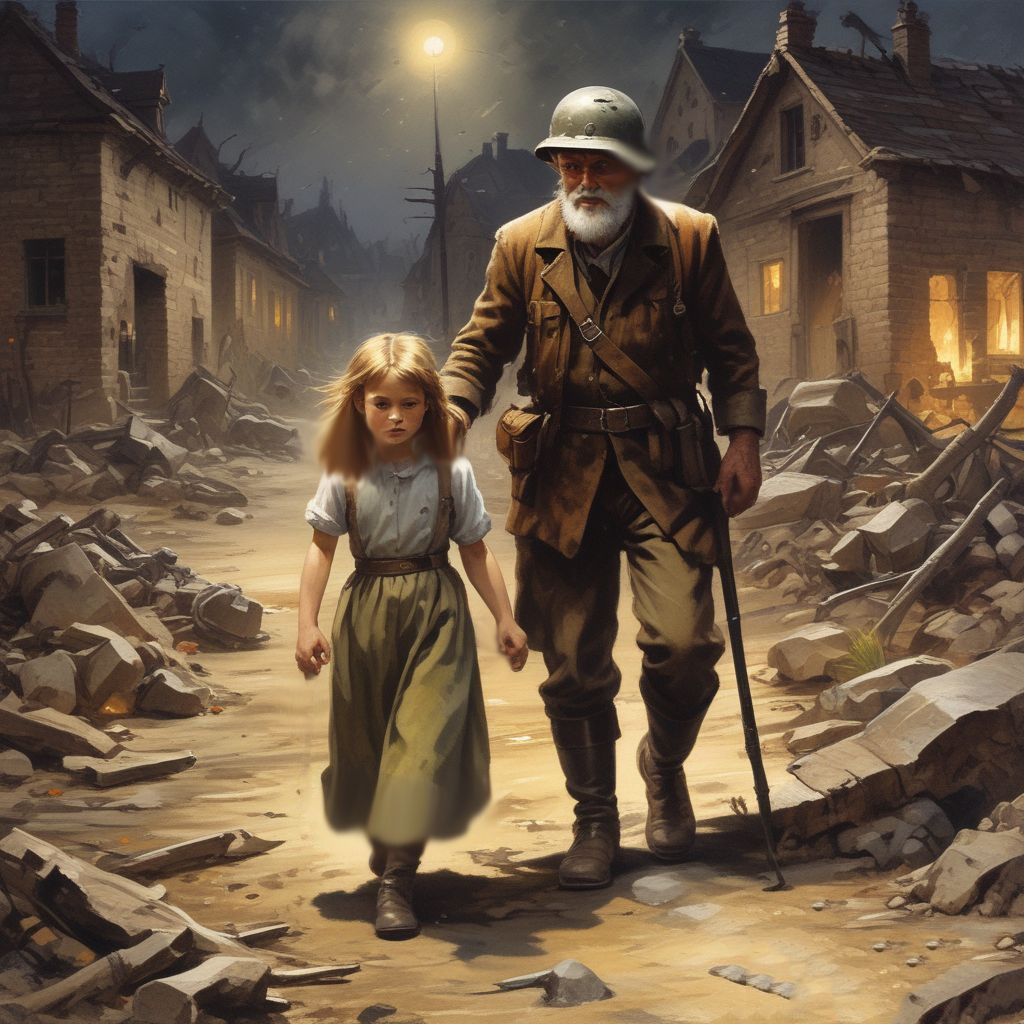In Ilium Ridge, the character of Homer is reimagined as a blind bard wandering the ruins of a WWI village guided by a child, clad in a German helmet and an old Achaean military coat. He performs a mournful, mythic prologue to shell-shocked refugees, singing of gods, war, and fate. This portrayal echoes the traditional Homer of ancient Greece, the blind poet of The Iliad and The Odyssey, but places him in a world of machine guns, gas masks, and broken cities. His invocation is no longer to the Muses, but to memory itself, preserving the epic spirit in a modern age of senseless slaughter. His song questions war’s motives—”Whoever needed an excuse for war?”—and laments humanity’s eternal entanglement in divine games and earthly bloodshed.

The Homer of the 8th century BC composed heroic tales that glorified gods and warriors, reinforcing cultural values through epic meter and performance. In contrast, the Homer of Ilium Ridge embodies poetic memory amid chaos. He is not just a narrator but a figure of tragic continuity, bridging myth and modern warfare. While ancient Homer sang of honor and wrath, Ilium Ridge’s Homer mourns the loss of meaning in modern conflict, making him a living relic who transforms classical memory into a tool for reflection in the 20th century’s darkest hour.

Leave a Reply